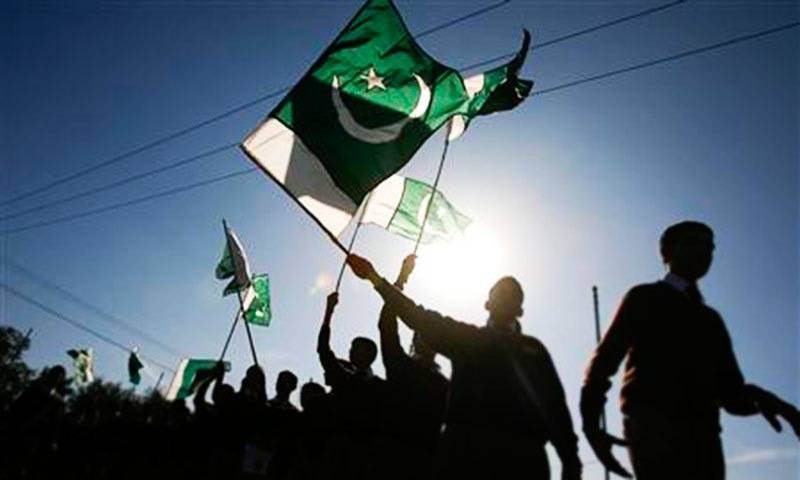
Pakistan, since its inception, has been engulfed by many problems. Among them, political instability is one of the most important. The political instability has derailed the country from development. Due to political instability, it took nine years for the country to promulgate its first constitution.
There are many causes of political instability, few of which are the intervention of army, lack of party ideology, no intraparty election, absence of gross root leader, and no supremacy of the parliament. These factors have tremendously affected the economy and political environment of the country.
However, precise measures like mutual understanding of politicians, adopting political ethics, and lifting the ban on student unions can put the country towards political normalization.
One of the most crucial factors responsible for current instability is the intervention of undemocratic forces. After the demise of the Father of the nation, Quaid e Azam Muhammad Ali Jannah, and the assassination of Liaquat Ali khan during the early years, Pakistan had no astute leader. The lack of a political leader allowed the army to intervene in politics.
Since then, Pakistan has been ruled by undemocratic forces. Ayub Khan, Yahya Khan, Zia Ul Haq, and Pervez Musharraf were the ones who directly governed the state of Pakistan. Most of these dictators came to power after ousting the lawfully and democratically elected politicians from power. The 18th Amendment has closed the way for the army to take over directly. But they are still important players in determining the fate of Pakistani politics. Thus, the intervention of undemocratic forces in Pakistan has weakened the democratic system in the country and has exacerbated the problem of political instability.
Along with the intervention of undemocratic forces, the absence of party ideology in Pakistan is another major factor responsible for political instability. Ideology plays a crucial part in political loyalties. In Pakistan, instead of ideology, people evolve around individuals. Therefore, people owe their allegiance to the person rather than the party. This behaviour creates a system of patronage. The individuals become contingent to the party when their needs are satisfied. When the party fails to do so, the politicians change sides. The politicians have passed a bill to curb this practice.
But this is common practice in Pakistan. For example, dozens of legislatures and politicians have changed sides since the removal of ex-premier Imran Khan from office. The lack of allegiance based on ideologies further complicates the unstable political environment.
Besides the absence of party ideology, the lack of intraparty elections significantly weakened the political stability. Party positions in developed and developing countries are based on intra-party elections and merit. In Pakistan, party positions pass from parents to children. For example, Bilawal Bhutto Zardari got his position three days after his mother's assassination. Similarly, Maryam Nawaz is the senior vice president of the Pakistan Muslim League.
While their parents are the ultimate decision-makers. The absence of internal democracy in parties elevates the leaders to positions where, they are not answerable to the people. Thus, the lack of party democracy hinders the path to true democracy in Pakistan.
Similarly, the absence of a gross root leader in Pakistan has further complicated the issue of political stability. A leader who comes from the gross root understands the problems of the people. Such leaders then devise different policies about the needs of the society. Unfortunately, in Pakistan, leaders are elected by their masters.
After coming into power by ousting the democratically elected prime minister, Zia Ul Haz imposed a ban on student unions, which still prevails in Pakistan. This ban not only silenced students but has hampered the development of future leaders. Therefore, the absence of a gross root leader creates a vacuum that is filled by the pawns of undemocratic forces.
Finally, the absence of supremacy of the parliament is another factor responsible for current political instability. Pakistan has a history of Judicial activism that undermines the supremacy of the parliament.
During the 1950s, Justice Munir reinstated the decision of the Governor-general to dissolve the constituent assembly, invoking the doctrine of necessity. Since then, the Supreme Court has legitimized the undemocratic interventions. The judiciary has also ousted the elected Prime minister from their offices. The judicial intervention not only undermines parliament supremacy but also hinders political development.
Political instability has hampered the economic growth of the country. Political instability creates uncertainty and thus discourages investors from investing. Political stability promotes transparency and predictability of economic policies. Ishrat Husain, a prominent economist, has linked current economic growth in India to political stability. Similarly, political instability has also affected the political landscape, as no prime minister in the history of Pakistan has completed a five-year term.
However, a few policy suggestions, like mutual understanding among politicians, acceptance of democratic norms, and legitimacy of political opponents, could help enhance political stability.

